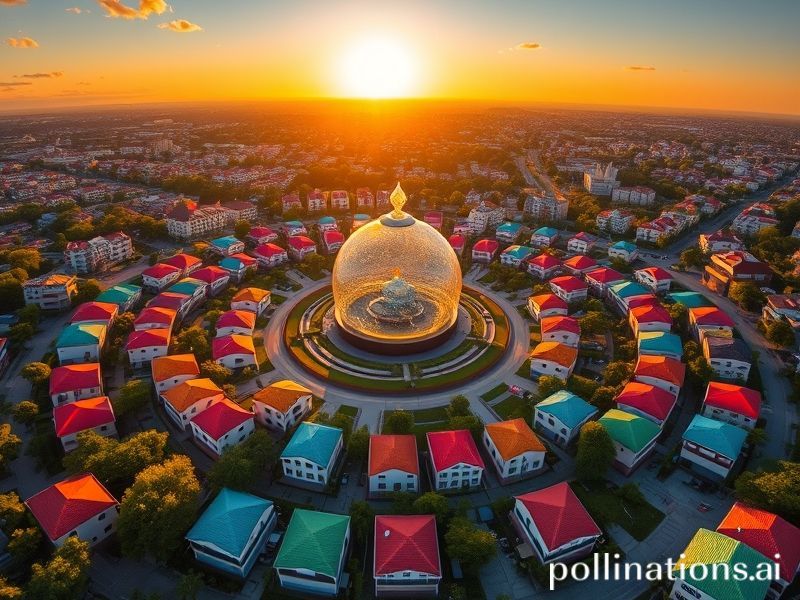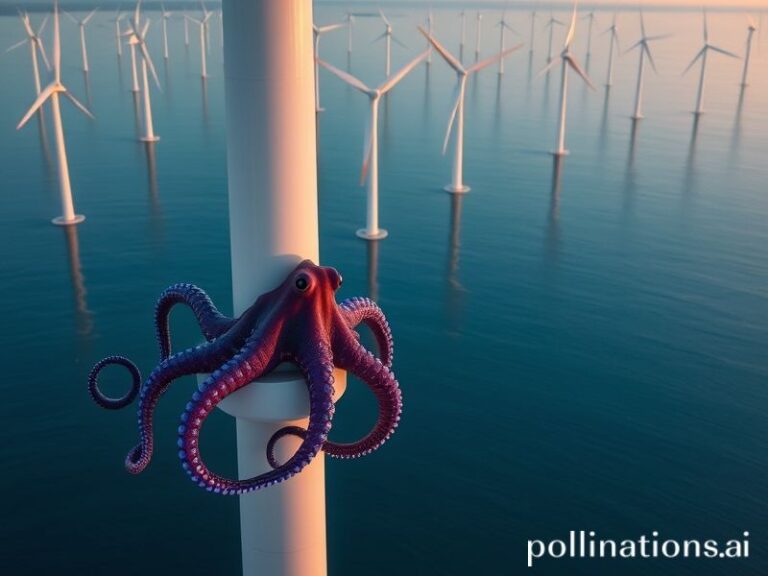Pokémon Pokopia: 500 Million People Just Proved Utopia is Easier in Pixels Than Reality
**Pokémon Pokopia: How a Fictional Utopia Became the Mirror We Deserve**
In the grand theater of global absurdities, where reality often outpaces satire, we now find ourselves contemplating Pokémon Pokopia—a place that exists only in the fevered dreams of franchise executives and the hopeful hearts of fans who still believe escapism can be pure. Launched last month as an ambitious multimedia expansion of everyone’s favorite cockfighting simulator for children, Pokopia promises “harmony between humans and Pokémon” through sustainable cities, renewable energy, and what the press materials call “ethical capture practices.” One can almost hear the world’s dictators taking notes.
The international response has been predictably human. Japan, still processing the irony of a nation known for workaholic culture exporting fantasies about work-life balance, saw Pokopia’s virtual cherry blossoms bloom across Shibuya crossing screens. Meanwhile, European Union regulators immediately launched seventeen separate investigations into whether Pokopia’s “ethical capture practices” comply with GDPR, because nothing says “harmonious utopia” like 400 pages of compliance documentation.
In the United States, Pokopia’s release coincided beautifully with the government’s forty-seventh attempt to ban TikTok, creating the perfect metaphor: while politicians panic about Chinese data collection, American consumers voluntarily upload their biometric information to play a game where they enslave sentient beings with the promise of “ethical” practices. The irony, like the Pokopia’s promised renewable energy, appears to be completely sustainable.
The developing world, ever the recipient of developed nations’ noblesse oblige, has watched with familiar bemusement as Pokopia’s “sustainable city planning” features are praised by the same countries that outsourced their actual sustainability problems overseas. “Ah yes, please tell us more about your virtual renewable energy,” commented an Ethiopian official who requested anonymity, “while we deal with the real-world environmental damage from your cobalt mines.”
China’s response has been characteristically pragmatic: they’ve already built three physical Pokopia-themed cities, complete with surveillance systems that would make Orwell blush, but painted in cheerful pastels. The Pokémon Company International has remained diplomatically silent about these developments, presumably because 1.4 billion potential customers buy a lot of ethical capture devices.
Russia, ever the innovator in international relations, has declared Pokopia “Western psychological warfare” while simultaneously announcing their own version featuring bears and unlimited energy from “traditional Russian sources.” The propaganda practically writes itself: “In Russian Pokopia, Pokémon captures you—but ethically, for Mother Russia.”
The broader significance of Pokopia lies not in its fictional achievements but in our desperate need for them. As the real world burns, floods, and generally deteriorates at a pace that would make a Doomsday Clockmaker suicidal, we’ve created a fantasy where humanity finally gets it right. The game’s most popular feature isn’t the battles or the captures—it’s the “Daily Harmony” mechanic where players maintain work-life balance while building sustainable communities. Users report spending an average of six hours daily achieving this balance.
Climate scientists, those eternal optimists, have noted that Pokopia’s carbon-neutral cities are achievable with current technology, requiring only the political will that’s been missing since 1988. “The technology exists,” explained Dr. Sarah Chen of the IPCC, “but apparently we needed cartoon monsters to make it palatable to the masses.”
As Pokopia’s user base approaches 500 million, one thing becomes clear: we’ve created the perfect opiate for the masses—one that promises revolution while delivering sedation, that offers harmony while requiring only our wallets, not our change. In Pokopia, we can all be heroes of sustainability without giving up a single modern convenience. It’s the kind of utopia that could only exist in fiction, which is precisely why 500 million of us are living there instead of fixing the world outside.
The Pokémon may be fictional, but our escape from reality has never been more real.







